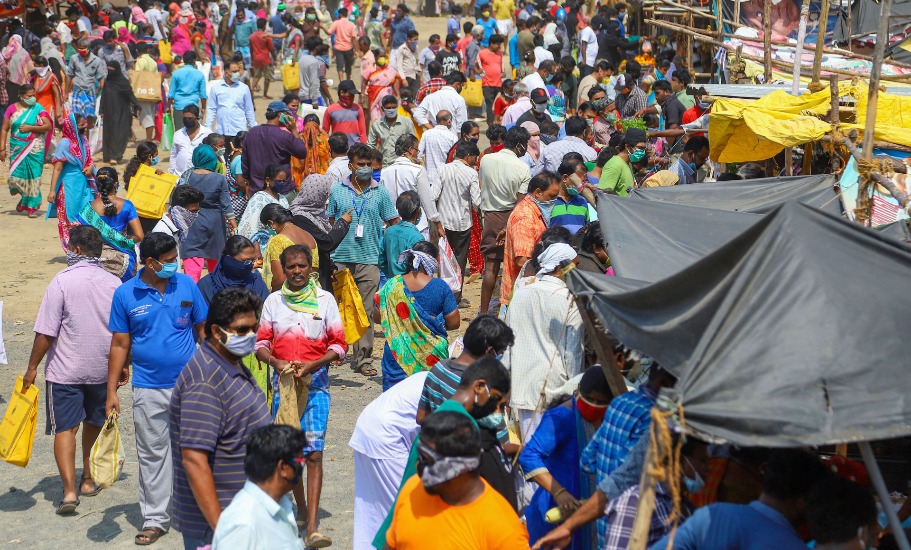
Infection control ways not duly followed in red zones: Central teams
Central teams, which were tasked to check preparedness of districts with a high load of coronavirus cases, found that infection prevention control practices were not properly followed in several hospitals raising concerns over safety of healthcare workers, official sources said.

Central teams, which were tasked to check preparedness of districts with a high load of coronavirus cases, found that infection prevention control practices were not properly followed in several hospitals raising concerns over safety of healthcare workers, official sources said.
Six high-level multi-disciplinary teams were constituted by the Union Health Ministry to assist and review state health departments for proper implementation of cluster containment plans for large outbreaks and check hospital preparedness for COVID-19.
Teams comprising experts from the National Centre for Disease Control (NCDC), AIIMS and ICMR among others visited states including Gujarat, Maharashtra, Rajasthan, Madhya Pradesh, Uttar Pradesh, Telangana and Tamil Nadu which have high case load districts.
They visited the stated between second and third week of April.
“They have observed that infection prevention control practices were not being followed properly during sample collection and treatment of confirmed cases raising concerns over the possibility of healthcare workers getting infected and leading to further transmission,” the sources said.
Related news: WB not providing logistical support, relevant info on COVID: Central team
They have recommended that such infection prevention control guidelines should be strictly followed in hospital settings.
Several healthcare workers including doctors and nurses have been infected by COVID-19 across the country.
Asked about the number of infected healthcare personnel, an official said no such centralised data has been maintained.
The Central teams have also advised the states to follow laid down procedures of sample collection and transfer to testing labs maintaining the cold chain.
“It was observed that the cold chain was not being followed at some cases which may lead to incorrect test results,” the sources said.
Explaining the cold chain, the sources said samples and specimens and even certain drugs and reagents are needed to be stored at a particular temperature. Even when they are transported, that temperature level has to be maintained so that they do not degrade.
The teams have also recommended the need for deploying more field staff for house-to-house survey in containment zones as well as strengthening of passive surveillance in buffer zones so that asymptomatic cases are not missed out.
The teams have also recommended maintaining of a separate triage area in hospitals for segregation of the mild, moderate and severe patients of coronavirus infection, which they said, were not followed in many places.
Related news: COVID-19: Cases from 10 cities account for over 50% of India’s tally
They have also recommended training of healthcare workers in IPC practices and clinical management of mild, moderate and severe as per the national clinical guidelines.
Interaction with many of them revealed that they are unaware of the guidelines to be followed while handling a COVID-19 patient and this is a “serious concern,” the sources said.
As many as 15 places including Delhi, Mumbai and Ahmedabad have been identified as “high case load” by the government.
Out of these 15, seven districts show particularly high case volumes, like Hyderabad (Telangana), Pune (Maharashtra), Jaipur (Rajasthan), Indore (Madhya Pradesh), Ahmedabad (Gujarat), Mumbai (Maharashtra) and Delhi.
The death toll due to COVID-19 rose to 1,007 and the number of cases climbed to 31,332 in the country on Wednesday, according to the Union Health Ministry.


